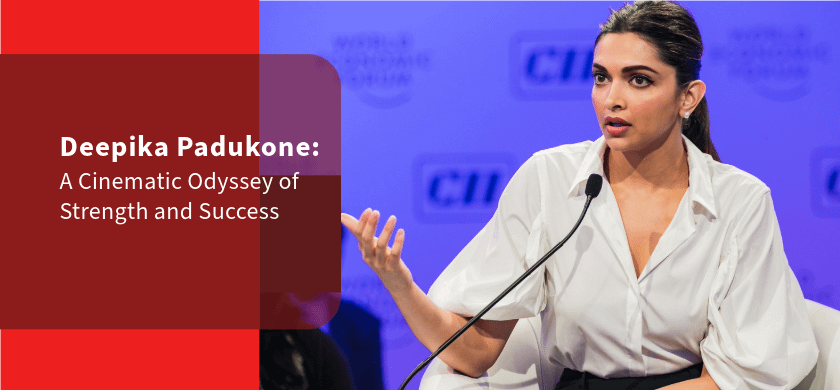Deepika Padukone, born on January 5, 1986, is a highly-paid Indian actress with three Filmfare Awards. Notable accolades include being named one of Time‘s 100 most influential people in 2018 and receiving the Time100 Impact Award in 2022.
Padukone, daughter of badminton player Prakash Padukone, was born in Copenhagen and raised in Bangalore. Initially a national-level badminton player, she transitioned to modelling before making her acting debut in the 2006 Kannada film Aishwarya. Her Bollywood breakthrough came in Om Shanti Om (2007), earning her the Filmfare Award for Best Female Debut. Subsequent successes include Cocktail (2012), Yeh Jawaani Hai Deewani, Chennai Express (both 2013), Bajirao Mastani (2015), Padmaavat (2018), and XXX: Return of Xander Cage (2017).
Founder of The Live Love Laugh Foundation, Padukone advocates for mental health awareness in India. She’s vocal about feminism and depression, involved in stage shows, has a clothing line, and endorses brands. Married to Ranveer Singh, her recent films include Pathaan and Jawan, both 2023’s top-grossing action films.
Early life and modelling career
Born on January 5, 1986, in Copenhagen, Denmark, Deepika Padukone hails from a Konkani-speaking family. Her father, Prakash Padukone, is a former professional badminton player, and her mother, Ujjala, works as a travel agent. Padukone’s younger sister, Anisha, is a golfer, and her paternal grandfather, Ramesh, held a position in the Mysore Badminton Association.
The family moved to Bangalore, India when Padukone was one year old. She attended Sophia High School in Bangalore and completed her pre-university education at Mount Carmel College. Initially pursuing a Bachelor of Arts degree in sociology at the Indira Gandhi National Open University, she dropped out due to scheduling conflicts with her modelling career.
Despite being socially awkward as a child, Padukone excelled in badminton, playing competitively from a young age. Her daily routine involved rigorous training, school, and badminton practice. While focusing on her education and sports career, she also worked as a child model from the age of eight.
In the tenth grade, Padukone shifted her focus to becoming a fashion model, deciding to give up badminton. In 2004, she began a full-time modelling career under the guidance of Prasad Bidapa. Her early recognition came through a Liril soap commercial, and she modelled for various brands. She made her runway debut in 2005 at the Lakme Fashion Week, winning Model of the Year at the Kingfisher Fashion Awards.
Padukone gained fame in 2006 with the Kingfisher Calendar and a print campaign. Fashion designer Wendell Rodricks praised her beauty and freshness, comparing her to Aishwarya Rai. At 21, Padukone moved to Mumbai and featured in Himesh Reshammiya’s music video “Naam Hai Tera.”
Enrolling in Anupam Kher’s film academy to gain acting experience, Padukone caught the attention of director Farah Khan, who cast her in the film Happy New Year. Her journey into films began with offers pouring in after featuring in Reshammiya’s music video. Malaika Arora, a friend of Rodricks, recommended Padukone to Khan for the role.
Acting career
Film breakthrough and career struggles (2006–2011)
2006
From 2006 to 2011, Deepika Padukone experienced both a film breakthrough and career struggles. She made her acting debut in the Kannada film “Aishwarya” (2006), a romantic comedy that proved to be a commercial success. Her screen presence was praised, although there was room for improvement in emotional scenes.
2007
Initially cast in Farah Khan’s “Happy New Year,” the film was shelved, leading to her iconic role in “Om Shanti Om” (2007). The film, set in the Hindi film industry, became the highest-grossing Hindi film of the year, earning Padukone accolades, including the Filmfare Best Female Debut Award.
2009
Her subsequent films included “Bachna Ae Haseeno” (2008), “Chandni Chowk to China” (2009), and “Love Aaj Kal” (2009). While some films were financially successful, Padukone faced criticism for her performance in “Bachna Ae Haseeno” and the failure of “Chandni Chowk to China.” “Love Aaj Kal” received praise, and Padukone earned another Best Actress nomination at Filmfare.
2010 – 2011
In 2010, Padukone had multiple releases, including “Karthik Calling Karthik,” “Housefull,” “Lafangey Parindey,” “Break Ke Baad,” and “Khelein Hum Jee Jaan Sey.” “Housefull” was financially successful, but her performances in some films received mixed reviews, and others were commercially unsuccessful.
The following year, Padukone featured in the item number “Dum Maaro Dum” and appeared in “Aarakshan” and “Desi Boyz.” The former faced controversy due to its sexual content, while the latter films faced commercial and critical challenges. The series of less successful films led to perceptions that Padukone had lost some of her previous shine.
This period marked a mix of successes and setbacks in Padukone’s career as she navigated the highs of blockbuster hits and the lows of critical and commercial disappointments.
Established actress (2012–2016)
2012
In 2012, Deepika Padukone’s career took a significant turn with her starring role in the romantic comedy “Cocktail,” directed by Homi Adajania. Critics, including Raja Sen, acknowledged her as a “stunning girl who can also act.” Playing Veronica, Padukone faced creative and physical challenges, transforming her physique through extensive exercise and a rigorous diet. Despite mixed reviews for the film, her performance was widely praised, earning her Best Actress nominations at various award ceremonies.
2013
The following year, 2013, was pivotal for Padukone, featuring in four top-grossing Hindi films. She appeared in “Race 2,” “Yeh Jawaani Hai Deewani,” and “Chennai Express.” “Yeh Jawaani Hai Deewani” marked a departure from glamorous roles, portraying a shy character, and earned her acclaim. “Chennai Express” became one of the highest-grossing Indian films, showcasing Padukone’s versatility.
In “Goliyon Ki Raasleela Ram-Leela” (2013), an adaptation of Romeo and Juliet, Padukone played Leela. The film faced controversies but received critical acclaim, with Padukone being praised as “breathtaking.” Her performances in “Chennai Express” and “Ram-Leela” garnered numerous awards.
2014
The year 2014 saw Padukone in the Tamil film “Kochadaiiyaan” opposite Rajinikanth, filmed using motion capture technology. She also appeared in “Finding Fanny,” a satire praised for her performance. Her role in “Happy New Year” opposite Shah Rukh Khan became a major success despite mixed critical reviews.
2015
In 2015, Padukone starred in “Piku,” a comedy-drama where she played a headstrong Bengali girl caring for her father. The film’s realistic depiction of a father-daughter bond earned her accolades and awards.
Later in 2015, Padukone portrayed a vulnerable woman in love in Imtiaz Ali’s “Tamasha.” Her performance was lauded, even though the film faced commercial challenges. She reunited with Sanjay Leela Bhansali in “Bajirao Mastani,” a historical drama that became a major box office success. Her portrayal of the warrior-princess Mastani garnered both acclaim and a Best Actress nomination at the 61st Filmfare Awards.
This period showcased Padukone’s ability to take on diverse roles and her success in both commercial and critically acclaimed films.
Professional expansion and film controversies (2017–present)
2017
In 2017, Deepika Padukone made her Hollywood debut in the action film “XXX: Return of Xander Cage,” starring alongside Vin Diesel. Despite mixed reviews for the film, Padukone received three Teen Choice Awards nominations, earning over US$345 million worldwide.
2018-2020
In 2018, she portrayed Rani Padmavati in the period drama “Padmaavat,” facing challenges in conveying her character’s courage through silence. The film, despite facing controversies and protests, became one of the biggest grossers in Indian cinema, earning over ₹5.45 billion (US$68 million). Padukone received another Best Actress nomination at Filmfare.
After “Padmaavat,” Padukone took time off and established her production company, Ka Productions. The first film under her banner was “Chhapaak” (2020), where she played an acid attack survivor. The film received critical acclaim but faced commercial challenges amidst political backlash.
2021-2022
In 2021, Padukone produced and acted in “83,” a sports drama about India’s victory at the 1983 Cricket World Cup. The film received positive reviews but did not perform well commercially. She then took on a leading role in Shakun Batra’s “Gehraiyaan” (2022), a drama about infidelity, and served as a jury member at the 2022 Cannes Film Festival.
2023- Present
Padukone reunited with Shah Rukh Khan in the action film “Pathaan” (2023), part of the YRF Spy Universe. The film, along with another collaboration with Khan in “Jawan,” broke box-office records, each earning over ₹10 billion (US$130 million) to become a major successes.
Upcoming projects include “Kalki 2898 AD” with Prabhas, “Fighter” alongside Hrithik Roshan, and “Singham Again” in Rohit Shetty’s Cop Universe franchise with Ajay Devgn in the title role.
Personal life
Deepika Padukone shares a strong bond with her family and regularly visits them in Bangalore, her hometown. She resides in Mumbai’s Prabhadevi neighbourhood and expresses missing the presence of her parents there. A practising Hindu, Padukone values religion and frequently visits temples and other religious shrines.
In 2008, during the filming of “Bachna Ae Haseeno,” Padukone entered a romantic relationship with co-star Ranbir Kapoor. She openly discussed the relationship and even sported a tattoo of his initials on her neck. The breakup a year later left her feeling betrayed, and she accused Kapoor of infidelity in a 2010 interview. Despite the challenges, they reconciled their friendship while working on “Yeh Jawaani Hai Deewani.”
In 2017, Padukone openly spoke about her relationship with frequent co-star Ranveer Singh, whom she began dating in August 2012. In October 2018, the couple announced their upcoming marriage. The following month, they married in traditional Konkani Hindu and Sikh Anand Karaj ceremonies at Lake Como, Italy. Since then, Padukone has been more reserved about her personal life.
Conclusion
In conclusion, Deepika Padukone’s journey in the entertainment industry reflects a remarkable evolution marked by resilience, talent, and a commitment to her craft. From her early days as a national-level badminton player to becoming one of the leading actresses in Indian and global cinema, Padukone’s story is one of determination and success.
Her filmography showcases versatility, with standout performances in both Bollywood and Hollywood, earning her critical acclaim and numerous awards. Beyond the glitz and glamour of the film world, Padukone’s personal life, marked by highs and lows, adds a relatable dimension to her public persona. The openness with which she has addressed challenges, relationships, and personal growth resonates with many, making her not just a cinematic icon but also a figure of inspiration.
Padukone’s commitment to her roots, her family, and her values, including her faith, adds depth to her narrative. Whether navigating the complexities of relationships or addressing mental health awareness through her foundation, she embodies a multi-faceted personality that extends beyond the silver screen.
As she continues to contribute to the film industry, engage in philanthropy, and embark on new ventures, Deepika Padukone remains a symbol of strength, grace, and authenticity, inspiring fans and admirers alike with her journey of self-discovery and success.

